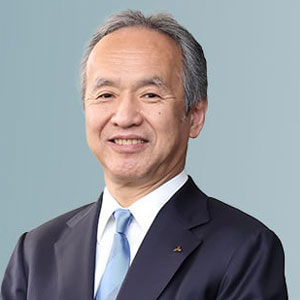
The Asian aerospace and defense manufacturing industry is experiencing rapid growth because of rising defense funding, technological progress and expanding aircraft requirements. China together with India and Japan are spending extensively on defense capability modernization which drives their procurement activities and production volumes to increase dramatically. Native manufacturing initiatives together with regional collaborations between international and native aerospace companies have pushed growth to new heights.
The industry has been expanding yet it encounters multiple obstacles. The global geopolitical tensions and trade restrictions worsen supply chain disruptions which create delays for product manufacturing. The absence of skilled labor personnel and engineering talent blocks the industry from fulfilling its expanding demand requirements. Manufacturing processes become more complicated due to stricter regulatory compliance demands which place stringent safety and security standards on operations.
Mitsubishi Heavy Industries Ltd. operates as a multinational company that focuses on aerospace and defense manufacturing activities worldwide. The company operates as a manufacturer of aircraft components together with defense systems and space technologies. MHI maintains long-term partnerships with worldwide aviation leaders while providing main wings and fuselage sections for commercial aircraft.
In the defense sector, MHI advances Japan's military transformation through fighter jet and missile defense system and naval vessel development. The company conducts research with a focus on space exploration as well as satellite technologies. MHI stands strong in its ability to resolve major aerospace and defense industry issues of Asia through continuous technological advancements and industrial efficiency practices.
Strengthening Supply Chains and Workforce Capabilities
Aerospace manufacturing faces a major challenge because of insufficient supply chain resistance. Industry performance suffers from worldwide disruptions which include semiconductors shortages and material procurement delays. The company solves supply chain resilience problems through advanced digital technology implementations across its business operations. MHI introduced its ΣSynX (Sigma Syncs) program in 2023 to combine artificial intelligence (AI) and automation systems which optimize supply chain operations.
The automated logistics solutions implemented by MHI through ΣSynX include both smart picking systems and synchronized operations between Automated Guided Vehicles (AGVs) and forklifts. The implemented innovations create more efficient operations while decreasing human labor requirements to address the impact of labor scarcity.
MHI dedicates its resources to establishing workforce education programs that create highly trained specialists. It works together with universities along with technical institutions to deliver specialized aerospace engineering and manufacturing programs. MHI develops talent through its initiatives which maintain a consistent supply of qualified experts who can push innovation throughout the industry.
Navigating Regulatory and Technological Challenges
Manufacturers in the aerospace and defense sector must fulfill strict requirements regarding safety standards as well as quality standards and cyber security regulations. The fulfillment of international and national standards demands perpetual expenditures in research together with engineering work. MHI utilizes its specialized knowledge of complex industrial systems to guarantee regulatory compliance in all its aerospace and defense business units.
The organization dedicates resources toward technological improvements to enhance both reliability and efficiency of its products. MHI combines predictive maintenance tools with digital simulation capabilities to boost aircraft components safety and performance. The company pursues sustainable aviation solutions that include hydrogen-powered aircraft and hybrid propulsion systems to support worldwide efforts in reducing aerospace carbon emissions.
Strategic Adaptation to Geopolitical and Economic Shifts
Market forces arising from geopolitical changes such as new trade relations and alliances threaten to affect aerospace and defense operations. The 2024 Medium- Term Business Plan of MHI presents strategic measures for dealing with these uncertain conditions. The company seeks business expansion through emerging markets and international strategic partnerships to create diversity in its operations.
🍪 Do you like Cookies?
We use cookies to ensure you get the best experience on our website. Read more...


